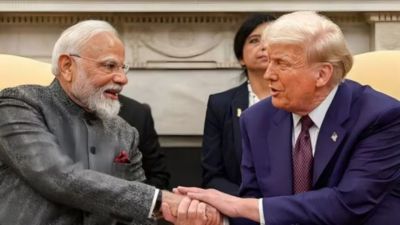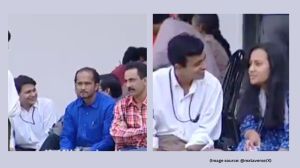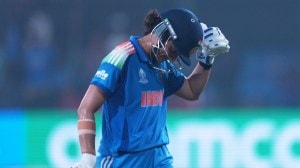35 years and still learning
Ravi Kinnagi could be described as the director with the ideal national identity as he has worked in different languages he can hardly speak.
You have been in the film industry for 35 years. How would you define direction?
Though I have been working for 35 years,Im still learning something new everyday. Direction is a creative job and one must have the passion and conviction to go ahead and realise his dreams of creating a story on celluloid for the audience. A director must be totally involved in his project from the minute he has conceived it till the day it is released in the theatres.
His work does not begin or end with being creative. He also has to shoulder a lot of responsibility. He has to ensure that the producers money is not wasted,the actors deliver good performances and the technicians handle the technical details such as cinematography,editing,sound,production design adeptly.
Last but never the least,the director must be responsible to his audience. He has to provide complete entertainment to the viewers who spend their time,money and energy to come and watch his film. The director has a holistic view of the entire film while the actors and technicians are involved only in their part of the job.
How do you choose your stories?
I choose a story when it clicks in my mind. I usually have a hunch about a story that says This will work and begin to develop it as I go along. Once I have made the choice,Im completely committed to it and my involvement is total. I can do justice to a subject or a story only when Im 100 per cent convinced about its appeal to the audience and its ability to recover the money the producer invested.
Have you had any commercial flops?
Of course,which director can really say that he has never given a flop? There is no formula for a sure hit. A flop in one language turns out to be a big hit in another language. My Oriya film called Sona Sankhali was a flop. But when I made it in Bengali under the title Mastaan,it was a big hit.
Besides,any film being a hit or a flop also depends to some extent on the effort that has gone into it. Its not just the director who can deliver a hit. The actors must be convinced about the characters they are playing. They must also have faith in the directors ability to guide them at every step. The same goes for the technical crew.
Delivering a hit is a two-way process. Im a very methodical director. Ive everything written down and planned to the last-minute detail. I always work on a bound script but allow improvisations provided they do not completely deviate from the script.
How much freedom do you permit to your actors?
First,I show them what I want. I have very definite ideas about every characters actions. I also have a clear idea about shot divisions much before we go on the sets. Im an editor too but I never edit my own films because an editor becomes biased about his own shots. Within the given framework of my bound script,I allow my actors some improvisations. Im open to suggestions,but I see that I have the last word.
Everyone believes that Im very strict on the sets. My producers always give me a free hand and I never bother about the logistics of the finance involved because I feel it will take my mind away from direction. If an actor is unable to deliver the way I want him to,I consider it to be my defeat,not his.
Have you had cinematic icons you loved to follow?
My father,Shankar Kinnagi,was my first teacher and icon. He taught me everything about filmmaking. I actually wanted to become a doctor. But somewhere along the way,destiny intervened and I ended up becoming a director. My brother,cinematographer Rajeev Kinnagi,introduced me to Prashant Nanda of Rajshri and my life took a different direction.
As a young man,Hrishikesh Mukherjee was my favourite filmmaker. I still believe in wholesome entertainment that his films offered. I do not believe in item numbers and that they can raise the box-office potential of the film. I also like Gulzar and Mani Ratnams work.
Which among your own films are your personal favourites?
This is a very difficult choice indeed. Even so,if you insist,I would tick off Poran Jaye Joliya Re,Bandhan,Juddha and Wanted.





- 01
- 02
- 03
- 04
- 05


























